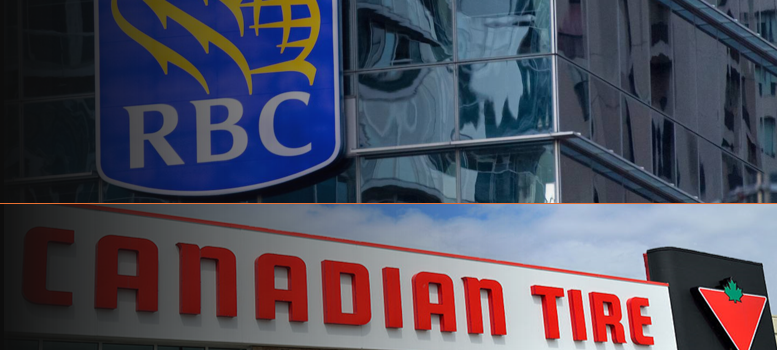 By Richard Schenker
By Richard Schenker
Air Canada’s loyalty program, Aeroplan, has been rapidly building its consortium of partners over the last few years. Following Aeroplan’s mid-pandemic relaunch in November 2020, they added some notable partners such as Starbucks, Uber and the LCBO during 2021.
This past November 2023, they launched a partnership with Parkland, the third largest retailer of fuel and convenience stores in Canada, operated under the banners of Chervon, Ultramar, Pioneer and Fas Gas. This partnership gave Aeroplan a re-entry into the high frequency category of fuel and convenience stores. Aeroplan used to be a points partner issuer with Esso, until this partnership was dissolved in 2018, as Esso elected to partner with PC Optimum. This week, Aeroplan announced a new type of health and wellness partnership with Manulife, Canada’s second largest corporate insurer.
So here is what has been disclosed about this new partnership. Manulife will become the first group insurance benefits provider in Canada to offer Aeroplan points to members. These Aeroplan points will be issued to Manulife group benefits members to motivate and reward activities that contribute to personal health and wellness outcomes.
Manulife will be launching a modernized and upgraded benefits platform this coming spring to offer group members a digital-first user experience that integrates health, wellness, and benefits into a singular platform. In early summer 2024, eligible group benefits members will be able to earn Aeroplan points for health and benefits-related activities, all while managing their overall wellbeing. These points earning opportunities will span from prevention to seeking health care, offered to Aeroplan members through an integrated and personalized experience.
Some of the ways in which Aeroplan members may earn points include healthy initiatives, like exercise minutes, mindfulness practices, completion of educational courses and helpful benefits tips and tricks, like downloading the digital benefit card. This digital experience will be gradually rolled out this year starting in the spring and will allow Manulife’s group benefits members to record health and benefits-related behaviours on a mobile app in exchange for travel and other rewards. For employers of such group plans, there is sufficient empirical evidence, that motivating and rewarding health and wellness initiatives results in a healthier, more productive workforce and less absenteeism as well as reduced insurance claims and theoretically, lower plan premiums.
Aeroplan is not the first loyalty operator in Canada to offer rewards for health and wellness. PC Optimum has several health-related benefits under their PC Health brand and Rexall’s Be Well program offers some health-related benefits inside of their loyalty offering.
However, no coalition loyalty program or financial services led loyalty program in Canada has been able to offer a comprehensive loyalty program incorporating health and wellness. What is interesting about this is that Manulife already has an acclaimed group benefits health and wellness loyalty program called Vitality which operates internationally. It is not clear as to whether this new partnership will replace Vitality or run in tandem with Vitality. Vitality is offered to individuals and group members of Manulife in Canada.
This Aeroplan-Manulife partnership is being merchandised by Manulife as accessible to millions of Canadians. However, in actuality, unless one is a group member of Manulife, through their employer or professional association, one cannot participate as an individual insured member of Manulife. It will be interesting to see if Aeroplan and Manulife decide to open this up more broadly to individuals and not just Manulife group members. That would certainly allow Aeroplan to cast a much wider net and reward more Aeroplan members for positive health and wellness activities and outcomes. There could also be an acquisition opportunity for both parties. Air Canada already offers travel insurance to its passengers through Manulife.
Overshadowing this announcement, just days ago, Manulife revealed that they have altered their group drug plan policy. Effective immediately, Manulife group plan members will be restricted to obtaining certain prescription drugs only through Loblaws and Shoppers Drug Mart pharmacies. This news feels counterintuitive to the big splash Manulife made earlier this week about making Aeroplan points and rewards ubiquitously available to Manulife group members.
Under this new group drug plan policy, if a group plan member requires any one of 260 life saving medications, they cannot choose which pharmacy they can acquire these medications from. Drugs in this class are meant to treat complex, chronic or life-threatening conditions such as rheumatoid arthritis, Crohn’s disease, multiple sclerosis, pulmonary arterial hypertension, cancer, osteoporosis and hepatitis C.
This news has raised several concerns including the relationship between insurance providers and major pharmacy retailers. There is great concern from healthcare advocates that this will restrict patient’s ability to access these much-needed medications, especially in rural areas. To counter this concern, Manulife has reminded its group plan members that these prescriptions are available online via Loblaws and Shoppers Drug Mart.
For independent pharmacists, the deal implies a movement away from personalized care for patients who have a longstanding relationship with their local pharmacist, let alone the negative financial impact on these independents in the way of lost revenue. While relatively new in Canada, this practice is known as “preferred pharmacy network arrangements.” It appears that Manulife is single handedly progressing Canada’s move towards this American model of “pharmacy pill factories.” Pharmacy markups on specialty drugs, which are costly, can play a significant role in these types of partnerships and forces pharmacies to compete for insurers’ business. Such partnerships are outlawed in Quebec to protect patients’ fair access and choice and preserve retail pharmacy competition. The Canadian Government Minister for Industry is also concerned about this development and is planning a review of this arrangement between Manulife and Loblaws companies.
Notwithstanding the news of Manulife’s partnership with Loblaws companies, Aeroplan should be applauded for breaking new ground in the health and wellness loyalty space in Canada. It will remain to be seen how Manulife group members embrace this new health and wellness initiative over the next few years. A natural extension of physical and mental health and wellness would be to reward Aeroplan members for making healthy and sound “financial” decisions. As, Aeroplan already has CIBC, TD, VISA and Amex as existing entrenched financial partners, this feels like a synergistic loyalty program extension for Aeroplan.
Richard Schenker is a highly accomplished customer engagement thought leader, loyalty practitioner and partnership curator who has designed, renovated, and managed some of the world’s leading customer loyalty programs. He has an impeccable track record of success at enriching transactional and emotional relationships between iconic brands and their customers, across multiple business sectors. Richard has spent the first half of his career in senior loyalty roles with the Hudson’s Bay Company and Shoppers Drug Mart and the remainder of his career in leadership roles with leading loyalty agencies, Air Miles and Bond Brand Loyalty. Currently he is the Founder & Chief Customer Engagement Officer of Loyal Strategy Consulting, a consulting firm focused on enriching customer loyalty for leading brands. Richard can be reached at: rschenker@loyalstrategyconsulting.com or visit: https://loyalstrategyconsulting.com




